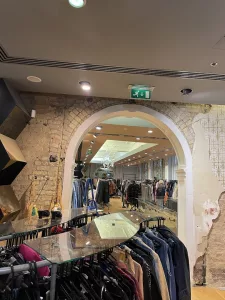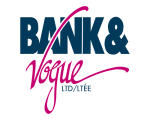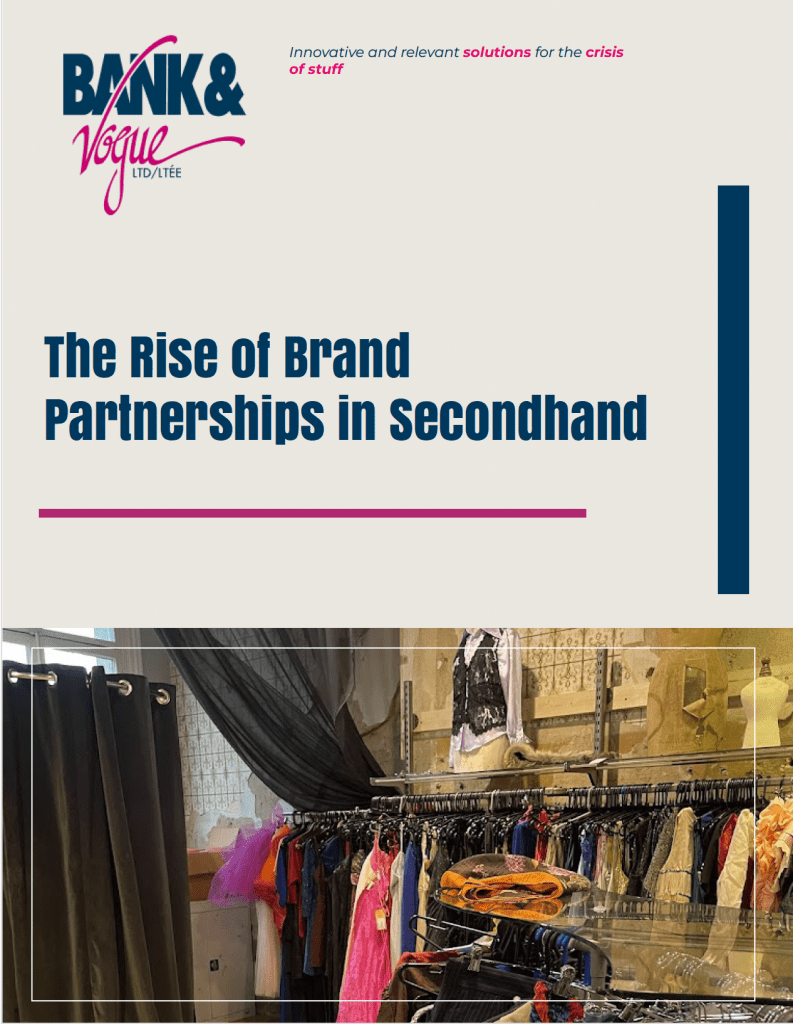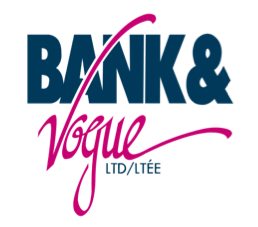Executive Summary
The secondhand apparel market is undergoing a transformative shift as leading fashion brands forge partnerships with resale platforms and circular economy innovators. These collaborations are not only driven by sustainability goals but also by shifting consumer behavior, regulatory pressure, and evolving business models. This white paper explores the strategic rise of brand partnerships in the secondhand sector, key players, benefits, challenges, and future outlook. Bank & Vogue and its group of companies play a pivotal role in advancing this ecosystem by managing one of the largest supply chains of used clothing globally. With integrated operations from collection to resale, BVH helps brands embed circularity into their models through strategic consulting, logistics, and resale partnerships.
Drivers Behind Brand-Resale Collaborations
- Sustainability Commitments: Brands are aiming to reduce their carbon footprint and textile waste, with resale partnerships helping to extend product life cycles.
- Consumer Trends: Gen Z and Millennial consumers prioritize value, uniqueness, and environmental consciousness, fueling demand for pre-owned fashion.
- Regulatory Landscape: Upcoming legislation in the EU and other regions is pushing brands to take responsibility for product end-of-life.
- Revenue Diversification: Resale channels offer new revenue streams through take-back programs, store credit systems, and online marketplaces.
- BVH’s Support: By supplying sorted, quality-assured secondhand goods and developing customized circular strategies, Bank & Vogue helps brands fulfill their sustainability objectives while capturing new market segments.
Case Studies: Brands Leading the Way
- Patagonia & Worn Wear: An early adopter, Patagonia runs its own resale platform to promote reuse and reduce waste.
- Levi’s & Levi’s SecondHand: Repaired and pre-loved denim is sold through Levi’s own resale initiative, boosting brand loyalty.
- Madewell & ThredUp: Through ThredUp’s Resale-as-a-Service, Madewell collects pre-owned jeans and resells them under a co-branded platform.
- Gucci & The RealReal: Gucci partnered with luxury reseller The RealReal to promote circularity in the high-end fashion segment.
- Beyond Retro & the Beyond Retro Label: Operated by BVH, Beyond Retro is a leading vintage retailer offering curated vintage and remade collections. Its in-house ‘Label’ line features upcycled fashion created from garments sourced through BVH’s global supply chain, exemplifying a vertically integrated model that closes the loop from sourcing to retail.


- Benefits for Stakeholders
- For Brands: Enhanced sustainability credentials, stronger customer engagement, and brand control over resale markets.
- For Resale Platforms: Increased inventory quality and brand recognition through collaboration.
- For Consumers: Greater access to authenticated, quality secondhand goods and incentive programs that encourage recycling behavior.
- With BVH: Brands gain a trusted partner with decades of experience in secondhand logistics, sorting, and distribution, enabling seamless scalability and high-quality supply. The Beyond Retro retail arm offers a direct-to-consumer outlet for fashion-forward, sustainable collections.
- Challenges and Considerations
- Logistics and Infrastructure: Collecting, sorting, and grading secondhand garments at scale requires robust systems.
- Brand Integrity and Quality Control: Ensuring that secondhand products align with brand standards.
- Data Integration: Merging resale operations with existing inventory and CRM systems for seamless customer experience.
- Consumer Education: Building trust and awareness around secondhand offerings.
- BVH’s Advantage: With global sorting facilities in Canada, the US, and the UK, and experience moving over 90 million pounds of used goods annually, BVH reduces logistical friction and supports circular models for fashion brands of all sizes.
- Future Outlook: Scaling Circular Partnerships
Looking ahead, brand partnerships in secondhand are poised to evolve with the adoption of:
- AI and RFID technologies for product tracking and authentication.
- Blockchain for enhanced transparency and provenance.
- White-label resale platforms enabling even small brands to enter the circular economy.
- Policy frameworks incentivizing take-back and reuse programs.
- Partnerships with Firms Like BVH: Through its wholesale expertise and retail innovation, BVH continues to develop scalable resale strategies, white-label solutions, and circular consulting services that position it as a foundational player in the circular fashion economy.
Conclusion
Brand partnerships in the secondhand market represent a dynamic convergence of sustainability, innovation, and consumer engagement. As the resale economy matures, these collaborations will play a crucial role in reshaping fashion’s future, promoting a circular, responsible, and profitable industry model. Bank & Vogue Holdings, through its integrated wholesale and retail operations, stands as a key enabler in this evolution, supporting brands in operationalizing circularity at scale.








